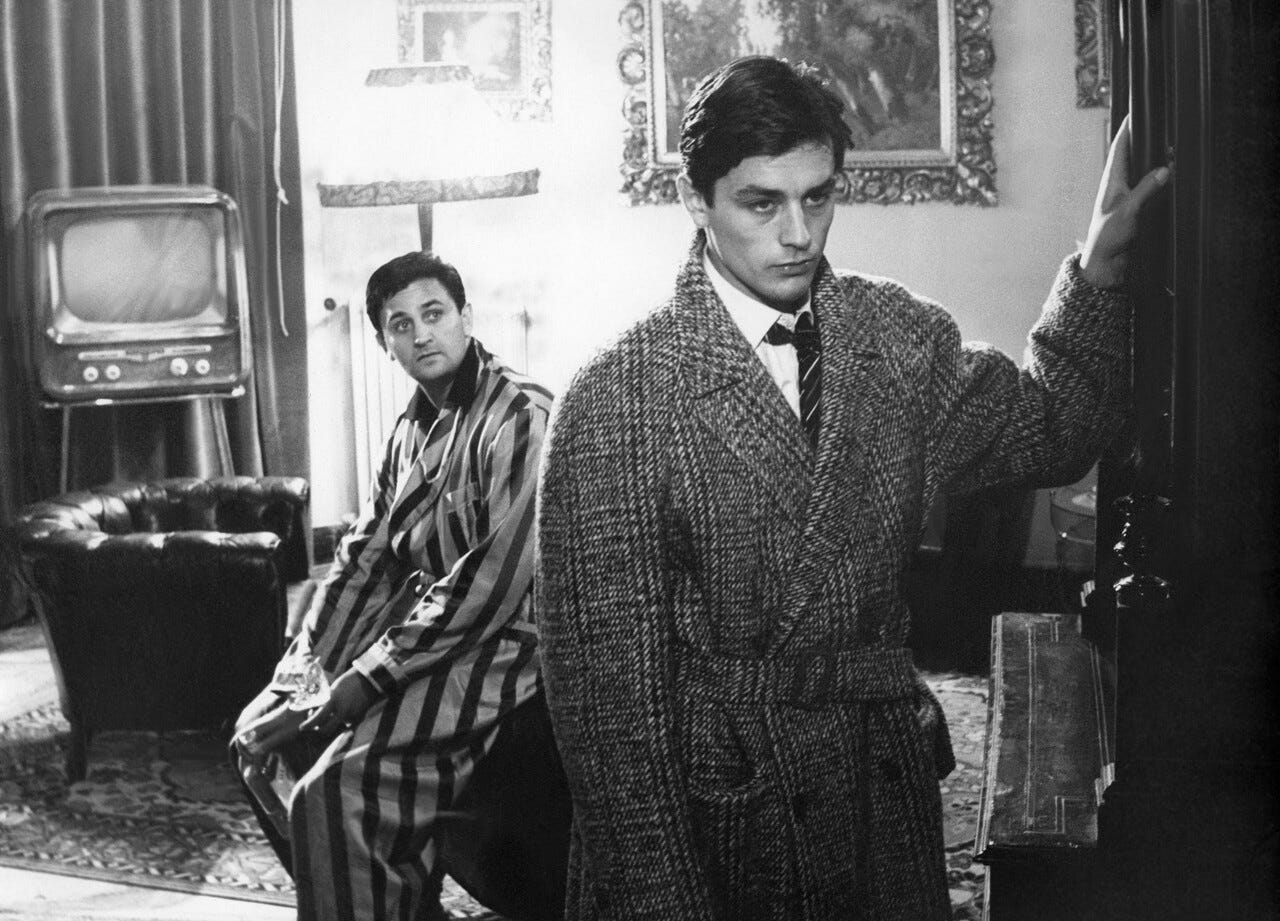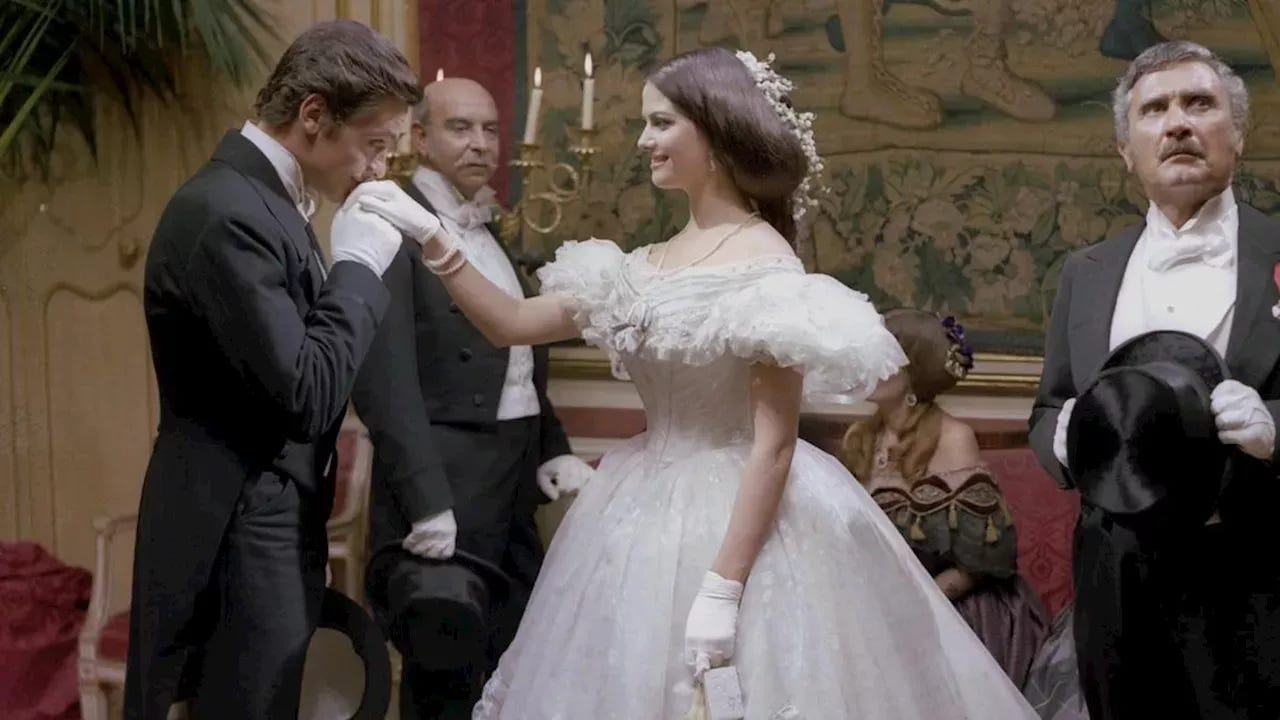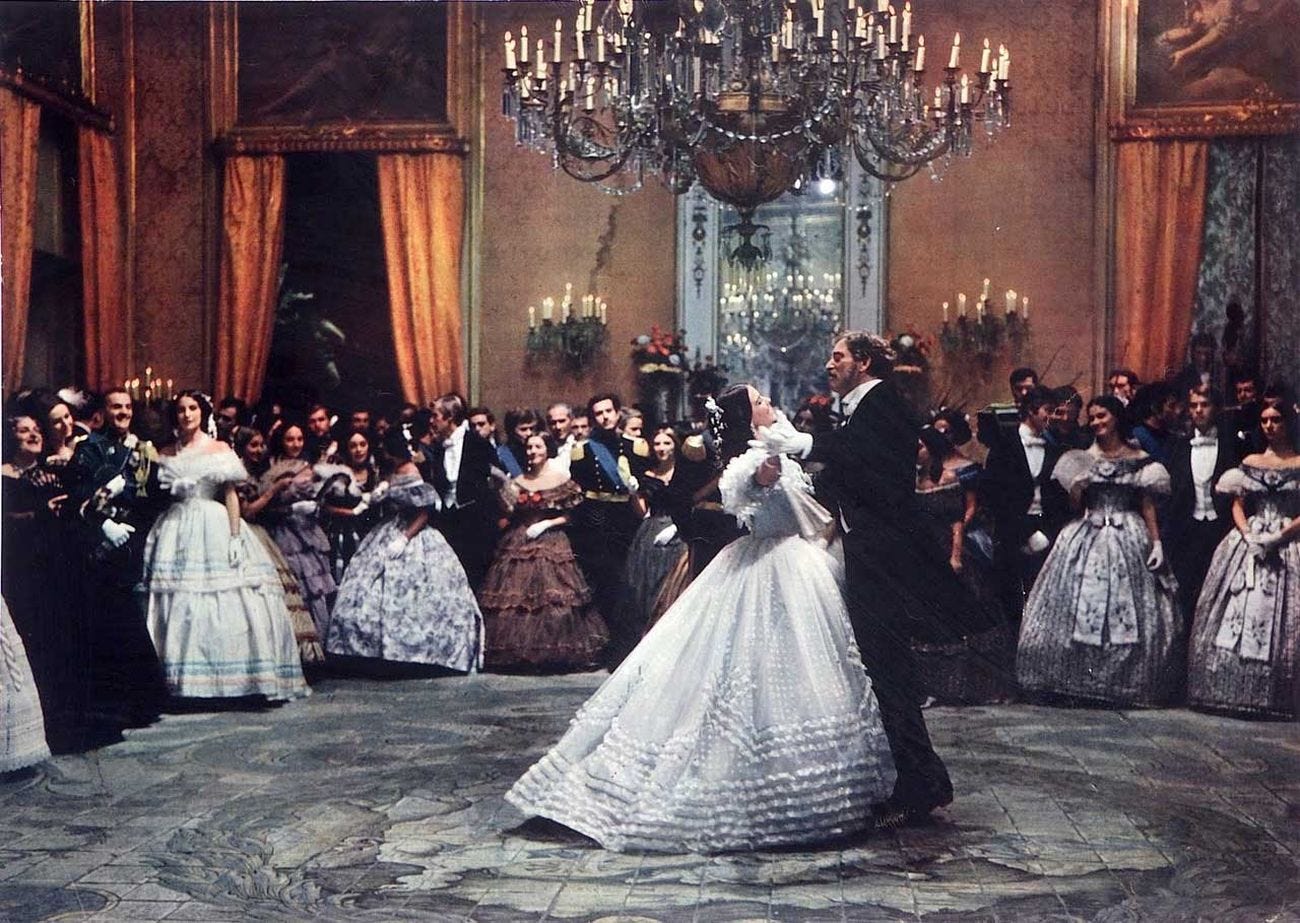Alain Delon, French actor, passed away yesterday at the age of 88. For many people, Delon is emblematic of a golden age of European cinema: fast cars, beautiful women, and dapper men. For me, Delon is most famous for a particular film, which I've also read in novel form (the film is based on a famous book). This is Il Gattopardo, translated as The Leopard, although the term gattopardo in Italian signifies a serval rather than a traditional leopard. The gattopardo or serval is a feline creature native to North Africa, although it has mostly been extirpated from this part of the world. The title of the film reflects both the coat of arms of the author as well as one of the themes of the book. The narrative involves a Sicilian aristocrat who contemplates his changing world in the context of the Piedmontese of Northern Italy conquering the former Kingdom of the Two Sicilies. In this changing political and economic landscape, the old aristocratic class of Southern Italy find themselves relatively impoverished relative to their Northern counterparts and their homeland relegated to the status of a backwater. But they haven't lost their sense of preeminence, which is reflected in one of the most famous lines in the film. "Se vogliamo che tutto rimanga com'è bisogna che tutto cambi." If we want everything to remain as it is, everything has to change. The protagonist, based on the author's great-grandfather, has to be hardy and willing to adapt, just like the gattopardo.
Delon and Claudia Cardinale in Il Gattopardo.
Il Gattopardo won the Palme d'Or at Cannes, although the film, and especially the performance of lead actor Burt Lancaster, was panned by American critics. It seems that the judges at Cannes delight in a particular kind of historical film, one which many not necessarily be avant-garde, but which captures the spirit of the times. Reine Margot is another such film that springs to mind, and apparently a favorite of the Cannes festival elite. One of the most famous scenes of Il Gattopardo comes at the end, when Prince Fabrizio, Burt Lancaster's character, dances with Claudia Cardinale's character. This dance represents the resignation of the old elite with the modern times, represented by Prince Fabrizio’s waltz with the bourgeois Cardinale. It’s an endless waltz that continues to this day. Another Italian film that suddenly explodes in poignant feeling at the end is The Garden of The Finzi-Continis, also based on a famous book. This film was directed by Vittorio De Sica and is certainly one of my favorite dramatic films from Italy.
Il Gattopardo clearly shows the hand of Luchino Visconti, with the picture-perfect scenes featuring dozens of extras, the costumes, and the realistic portrayal of people and times difficult to imitate as our way of life today is so far removed. Even the slow pace and operatic feel are characteristics of Visconti’s. We might lament that they don't make films like this anymore, but we might also lament that books like that which the film was based on aren't written anymore either. Perhaps it's difficult for the writers of today to truly imagine the manner of living before the revolutions of the 20th century. Probably not, but perhaps. Il Gattopardo is a book that captures the changing times in a poignant way without getting bogged down in political questions or proselytism. This is also true of the film, and Alain Delon's performance fits perfectly into the dramatic canvas of people of all classes being irrevocably transformed by the changing times.




